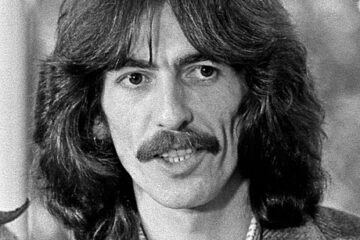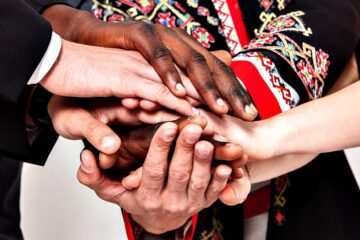I only just realized today that we have just passed the second anniversary of the shooting massacre in Las Vegas, a strange story — they’re all strange, but this one particularly so, because not only have all the questions gone unanswered, they are no longer even being asked as this particular event seems to have been tossed down a collective memory hole. It’s so easy to forget about the loss of nearly 60 lives when every day the headlines scream catastrophe and chaos, whether warranted or not.
Of the Vegas massacre, the headlines were clearly warranted but short-lived, and even the usual controversy about gun-control in the aftermath seemed unmemorable as the story appeared to die on the vine.
But the issue of what to do about this story — these stories — is still worth considering.
If you say “pray” it almost feels like that’s too passive.
we do need to pray, though — for many things, and many people, but mostly for wisdom, because I don’t know if anyone has the answer.
Stronger gun laws? Great, but we have to also deal with the fact that this Vegas shooter was using what is already illegal.
Guns can always be attained by people who really want them and are willing and able to pay. Chicago has some of the strictest gun laws in the country, and every weekend there are shootings — ditto Washington DC, which also has strong laws. Conversely, Mississippi gun laws are considered to be among the most liberal in the country. Laws are great, but they are not the whole answer. They are useful mostly for making us feel better b/c we’re “doing something” in the face of what cannot be understood.
Ultimately, this question, though, goes to something within the human heart, itself. I’m not talking about the brokenness of Original Sin (although that is at work, too) — I’m talking about what we are not doing as a people, and as a society, and yes, as a church, to teach the true things about everyone’s God-given worth, value, inherent dignity of the human person. It is evil to throw people away, and evil to toss away their memory, too.
This is equally true to whether the question is guns or abortion, or even the new social trend of public shaming and job loss, aka the “cancel culture”. Now, clearly, actively working to impact a career and a person’s livelihood because you don’t like something they’ve said is not on the same level as the actual blood-and-guts slaughter of human beings, whether by automatic cartridges or curettes, but each of these things is nevertheless about throwing human beings away, discounting their humanity. Falun Gong apologist Caylan Ford was one of those who had to resign from her UCP candidacy due to some comments that were taken out of context. It’s easy to dismiss someone based on what they’ve said or done. Listening to them and giving them a second chance, whether they deserve it or not, is difficult. Each involves a complete disconnect between the sacredness and value of one’s own humanity and the humanity of the “other” humans whose existence feels inconvenient or expendable.
I recall attending a March for Life way back in the day, and hearing then-President George W. Bush make a similar point in his address to the gathering. He said tat with or without and end to Roe v Wade, nothing will change regarding the mentality of abortion until something is changed in the human heart. The egregious Ann Coulter later went off on him for it — how dare someone go off the pro-life script, or try to enlarge it! — but I knew he was correct.
Guns, abortion, cancel culture — in the end it’s all driven by a bottom-line, self-hating instinct to self-immolation, only writ large and bringing others along into one’s all-consuming fire due to combination of confusion and cowardice.
And, let’s face it, some of this is simply the problem of evil, which is, minute-by-minute dueling with the forces of good all about us, and distorting how we perceive reality because in the end all evil really has is distortion and lies — it’s why so often evil seems to operate through mirror imaging, mirrored thought. Mirrors tell you the truth while they also distort and deceive.
Remember The Joker in Christopher Nolan’s The Dark Knight? He encapsulated that problem — the problem of a dog chasing a car with no idea what he’ll do once he catches it, but persevering in the pure thrall of aggression; the truth that “some men just want to watch the world burn…”
Sometimes evil is simply all about itself.
This problem, then — the problem of human slaughter, or public massacre, or public shame feeding meant to obliterate an “other” until he or she disappears from our sight, is as old as time itself and the very first battle between light and dark.
We who call ourselves part of a Church founded by the Prince of Peace, the Wonderful Counselor, need to somehow do better with what we teach, about human life, human dignity, compassion and mercy and justice, and with how we teach it and — most importantly — how we live it.
Because in the end, earthy measures will not constrain our darkest instincts — only light can do that. We want to collect all the firearms right now and given them into the keeping of the government? This government? This president? This government, the next president?
People who want to lash out and destroy will just find other ways to do it. Who wants to kill, will kill.
And when I consider all of this, all I can think is, “Come, Lord Jesus.”
And then, I see a story like this one, about this man, Brandt Jean, forgiving a woman who has unjustly taken the life of his brother, and I think, there is still hope for us.
And then, I see people on social media arguing that while Jean’s forgiveness is all well and good, it does not help to satisfy justice, and in general there is not enough justice in the world, and especially not when it comes to minorities.
Well…one really can’t argue with that. There is lots of work to be done in America on the race-relations front, to be sure.
And to be sure, there isn’t enough justice in the world — the Vegas massacre tells that story, as do countless gut-turning abortion stories, as do stories of people being ruined because of an unguarded thought, a bad joke, or some other moment of bumbling human stupidity (of which we are all capable and guilty). In this case, though, the urge to talk justice seems to be diminishing the deeply important example of Brandt Jean. It’s emphasizing worldly concepts of justice — how we humans understand justice.
That’s all fine as far as it goes, but as far as it goes is limited by the limits of human understanding. Because God understands justice (and mercy) in ways we cannot. For this man, Brandt Jean, “justice” is about more than time served, because it contains an element, a hope, for redemption and salvation. Absent that, what is “justice” but an aching void in someone’s personal calendar?
Real justice has to be more than payback, more than an eye for an eye. It has to right a wrong, and if that’s not possible, to at least fix what is broken in the perpetrator, if it is to have real meaning.
So, Brandt Jean’s way of thinking is not a bad way to think. Perhaps if there is more forgiveness, more hope of deliverance from what is broken amid all of us, then more justice will come.
And that might mean there is still hope for a humanity that seems to be racing to destroy itself within its throwaway culture.
There is still hope. But it is starting to feel like a near-thing, sometimes, isn’t it?
I still believe that prayer can change things for the better, because I have seen it be so, often and often.
So let’s keep praying. It’s the “least” we can do, in the minds of some, but, particularly when practiced every day, it has real power.
Image: Voice of America; Public Domain



0 Comments